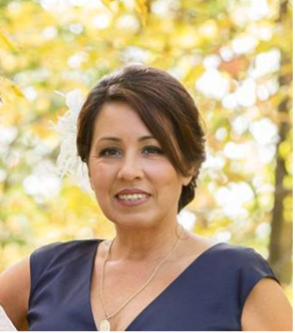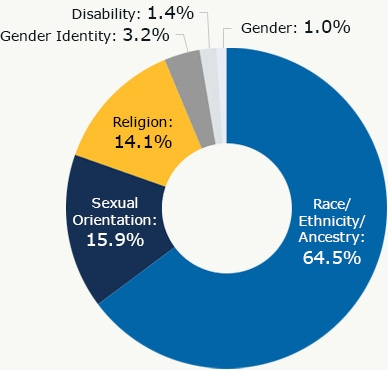The Victim/Survivor Services content is organized according to the stages following a mass violence incident. Sections focusing on the Crisis State, Intermediate Stage, and Long-Term Stages provide relevant information and resources that are most appropriate during each of these time periods. You can access the material either by scrolling down the page, section by section, or by expanding the purple navigation panel at the side of the page to jump to the section that you want to see.
This stage immediately follows the incident of mass violence and typically lasts about 24-72 hours. You can think of this stage as the height of the crisis, the period of not knowing, and of experiencing fear, shock, numbness, and confusion. Many things are happening at once and it can be difficult to sort it all out. Finding reliable and knowledgeable help can be crucial to your overall wellbeing.

The immediate aftermath of a mass violence incident (MVI) is a very confusing time, and you might have many issues to address:
- I cannot find my loved one, friend...
- I’m injured and need to see a doctor…
- I lost my identification, phone, or wallet…
- Where can I get food and somewhere to sleep?
- I need help getting back home.
Getting help to navigate the many issues you face can be useful. At this stage, a victim advocate, also known as Victim Service Professional (VSP), can help provide the support and guidance you need.
Following an MVI, law enforcement agencies (city police, sheriff’s departments, state police, even federal agencies) determine who is the lead agency for coordinating the immediate response. Once that happens, the lead agency will usually set up two separate response centers, each with distinct purposes:
|
The Incident Command Center
|
|---|
|
|
The Family Assistance Center
|
|---|
|
Following an MVI you will have many decisions to make. Much of this will be very new for you. Here’s where services at the Family Assistance Center (FAC) can really be helpful. When you reach out to the FAC, you will find staff and volunteers willing to help you prioritize and deal with the most urgent issues first.
A VSP can help you find your way through many of the challenges you face after a mass violence incident. For example, VSPs can:
- Provide you with basic emergency needs and practical support – medical, food, shelter, transportation, emergency identification, property retrieval/recovery, etc.
- Help you locate a family member
- Act as a guide and support to help you find local social services, referrals for medical care, or other types of assistance
One of the best places to start searching for a VSP to assist you is the OVC Directory of Crime Victim Services (access by clicking the link). Using the search function in the Directory, you can enter the name of the county or city where the MVI took place, along with the words "victim assistance."
For more information about assistance programs, check out the Human & Social Services section of the VRC.
If you need help finding a loved one, we suggest you contact the Family Assistance Center. They can help you:
- Find area hospital(s) and medical centers where victims were taken
- Contact the Medical Examiner’s Office
You may be asked to identify and claim your loved one’s body at the Medical Examiner’s Office. This office is known by different titles in communities, such as the Coroner’s Office or Forensic Pathologist. Identifying a loved one’s body can be very hard, and you should consider asking for support – another family member, a close friend, or faith leader (rabbi, pastor, priest, imam, etc.). In some cases, a VSP can accompany you. Do not hesitate to ask for support.
The stress of identifying your loved one can be very taxing, so it is important that you pay attention to your well-being. If you have significant health issues it may be wise to inform your physician before and after you make the identification.

Your faith leader, family, or staff at the funeral home can help you plan the funeral service and burial arrangements. If you or your loved one has faith or spiritual traditions, this should be considered and honored in your planning. Be sure that you are guided by financial sensibility and avoid becoming mired in funeral debt. You might find the Funeral Planning Checklist offered by the National Caregivers Library helpful.
Crime Victim Compensation is a program designed to help family members in the aftermath of crime address the many financial burdens created by a criminal act. You might be eligible for help with:
- Funeral and burial costs
- Medical expenses
- Loss of income – if the victim was the main source of income in your household
- Counseling and mental health needs – for victim’s family
- Time lost from work due to the crisis
A VSP can help you determine your eligibility and file a claim in the state where the crime occurred. Learn more about Crime Victim Compensation and search for local agencies to assist you.
If your loved one was killed in an MVI or terrorist attack outside of the United States, the International Terrorism Victim Expense Reimbursement Program (ITVERP) may be able to help you.

Stressful situations are a part of life, and most people learn to handle stress pretty well. But finding yourself the victim of a horrific mass violence crime can overwhelm even the most resilient people. Learning to manage the trauma caused by an MVI can be very difficult. Similarly, the pain of losing someone by homicide can be incomprehensible. Processing this kind of pain is difficult, and many people need help getting through it. Keep in mind that children do not express their grief the same as adults, and therefore we tend to think they are OK. Give them permission to talk and answer their questions as honestly and as age appropriately as possible. A skilled child therapist will know how to help them. Remember, Crime Victims Compensation can also help defray the cost of counseling.
For more information about grief and the emotional toll of mass violence, you can visit the Managing Grief & Trauma section.
Emergency Services are also accessible across the country. You can always contact the Suicide and Crisis Lifeline by calling or texting 988. This is a free, confidential service that connects you with a trained crisis counselor.
You might choose to create social media pages about who your loved one was with meaningful messages and hashtags. You can include pictures and videos along with personal testimonials and stories from family members and friends. Including things that document the victim’s life and interests, such as music, poetry, or spiritual beliefs, can be inspirational and comforting. If you are feeling the desire for revenge against, or punishment for, the perpetrators of the MVI, we suggest you think carefully about whether to post about those feelings on social media. Those kinds of statements sometimes can be used in defense of the accused.
Many times, survivors are approached by the news media for interviews. Whether or not you want to participate is your choice. You do not have to give an interview at any time, and you certainly don’t have to give an interview at a time that doesn’t suit your needs. It might be better to give yourself time before speaking with anyone in the media; this way you can learn more about what is happening, and it will give you time to think about what you want to say.
Remember, you do not have to respond to the media at all.
If you decide to speak to the media, VSPs can help you think about what you would like to say. It might be easier to select a spokesperson or to release a written statement to the media. Also, a VSP might be able to refer you to a media specialist within law enforcement or the local government (for example, the mayor’s office). You might want to ask a close friend or loved one to serve as your or your family’s spokesperson to respond to any requests.

During this phase you will begin reordering your life and responsibilities and learn to manage the trauma caused by what you experienced. An MVI is a shocking crime that someone planned and carried out based on their perceived need to enact revenge or express hatred, or some political, social, or cultural ideology. The results are usually catastrophic physically, emotionally, mentally, and spiritually. People respond to these traumatic situations differently – and it’s important to remember that there is no right or wrong response.
During this stage, you might also be involved with the criminal justice system, working with law enforcement, and preparing for and attending hearings and trials through the prosecutor’s office.
If an arrest is made, survivors and family members are typically provided with access to a “victim advocate,” a VSP who assists throughout the legal process. The victim advocate can help you prepare for all aspects of the legal process. There can be different phases of court that can sometimes be very long and drawn out. You will be informed of your rights as a survivor (orally and in writing, and when applicable, across jurisdictions). An advocate can also help you enroll in the victim notification program so that you are kept aware of the proceedings, and they can attend these hearings with you. While VSPs are not lawyers, they can help you with a basic understanding of the process and arrange for your questions or concerns to be raised with those who can help you.
Another vital role of the VSP is helping you prepare your Victim Impact Statement. This is an important message because it informs the Court of how this crime has affected its victims. Victim impact statements describe the emotional, physical, and financial impact you and others have suffered as a direct result of the crime. Victim impact statements can either be written or oral statements and can remain a part of the defendant’s criminal file.
During the legal process or trial, should you have any questions about your safety, please inform the advocate so they can advise the proper authorities and help you develop a safety plan. They can also provide intervene and protect you from the news media if you so desire.

There will be times people, places, or situations will remind you of your loved one, and you will likely experience very strong feelings. These people, places, and situations may be “trauma cues,” or signals that stir up your emotions every time you encounter them. Sometimes these cues can take you by surprise, but they often (though not always) occur around:
- Birthdays
- Wedding anniversary
- Special events such as graduation and holidays
- The annual date of the mass violent incident
- Any criminal justice system hearings such as pre-trial, trial, sentencing, parole, or execution
Throughout your journey to recovery, you can find help from a VSP and/or mental health counselor. They can help predict and prepare you for what is to come. It is important to manage your expectations about what you think should happen as opposed to what actually happens, and this is especially important when it comes to the criminal justice system. A VSP or counselor can help you manage your expectations about the outcome of criminal justice proceedings. No one can promise you what the outcome will be, but you should be prepared emotionally and psychologically for the best- and worst-case scenarios.

Hate crime is real. Members of groups that are often targeted by hate crime are generally well aware of that, though others might be less aware. The following chart demonstrates the number of such crimes reported to law enforcement. (US Department of Justice)

Bias Motivation Categories for Victims of Single-bias Incidents in 2021*
*2021 was the first year that hate crimes statistics were reported entirely through the National Incident-Based Reporting System (NNIBRS). Some law enforcement agencies did not make the reporting transition therefore the numbers are incomplete.
If you have been a victim of a mass violence incident (MVI) resulting from hate motivation, you understandably may be experiencing complex emotions and thoughts. The intended purpose of a hate crime is to create fear, anxiety, worry, confusion, and anger. As a result, you may find yourself distrusting people who, in some way, remind you of the perpetrator(s). You might avoid going to some places, fearful you could be targeted and attacked. These feelings can create a cycle of distrust and avoidance and can make any psychological feelings even more intense.
In 2021, the COVID-19 Hate Crimes Act was passed to raise awareness of and respond to hate crimes primarily against Asian Americans, Native Hawaiians, and Pacific Islanders (AAPI) during the pandemic. There were many individual attacks, as well as the spree shootings at spa businesses in Atlanta, GA, in March of 2021 that left many people vulnerable and afraid.
The LGBTQ and gender-nonconforming community is also vulnerable to hate crimes whether individually or in mass shootings incidents like Colorado Springs, CO, and Orlando, FL. There have also been racially motivated mass violence incidents seen in Buffalo, NY, El Paso, TX, and Charleston, SC.
If you are a victim or survivor of a hate-motivated mass violence crime:

The resources below can offer you guidance and support as you process what has happened and move along on your journey towards recovery and resilience.
Victim Compensation:
You may be eligible for financial assistance due to your victimization experience for help with things such as, counseling, medical expenses, relocation, lost wages, and more. Search the Office for Victims of Crime to find victim compensation information from agencies near you.
Resources for Hate-motivated Issues:
Organizations Fighting Hate:
• Southern Poverty Law Center
• Preventing Hate Crimes in Your Community
• Human Rights Campaign
Racial & Ethnic Inequity
• Stop AAPI Hate
• NAACP
• Tribal Resource Tool
• American-Arab Anti-Discrimination Committee
• Mexican American Legal Defense and Education Fund
• Where to Report a Hate Crime (by state)
Anti-Semitism
• Anti-Defamation League (ADL)
• American Jewish Committee
• Jewish Council for Public Affairs
Religious
• Developing Emergency Plans for Houses of Worship
LGBTQ+ Organizations
• Gay & Lesbian Alliance Against Defamation (GLAAD)
• National Gay and Lesbian Task Force
Federal Resource:
• Unites States Department of Justice – Hate Crimes Resources
o In English
o En Español
Additional Information About Hate-Motivated Violence:
• Victim Connect Resource Center: A Program of the National Center for Victims of Crime
• Safe Horizon
During this phase you will began to focus on developing the resiliency skills that will help redefine yourself and reimagine your purpose. We strongly recommend that if there is a Resiliency Center in your community, you avail yourself of the very valuable services they provide.
Also, during this time, there may have been an arrest in your case. Court involvement can last a very long time and be very emotionally taxing. You can explore the Victims’ Rights section of the VRC for more information about how the legal process works.
A Resiliency Center (RC) is designed to help with long-term issues and promote mental health for individuals, as well as the overall community. It can take some time for a community to set up an RC – sometimes it can take 6 months or even a year – and start directly helping people. Depending on how they are funded and set up, some RCs can stay open indefinitely, whereas others may close down after a certain amount of time. RCs focus specifically on the communities that they serve. For instance, victims of an MVI that took place at a house of worship may require services different from those of victims of a school shooting. No matter the type of MVI, however, the basic purpose of an RC is to help address and manage longer term issues victims and survivors may face.
If a Resiliency Center is not available in your community, a VSP can offer you support and refer you to other entities such as counselors/therapists, case managers, and other wellness services that can help.
Each Resiliency Center has Victim/Survivor Navigators who act as “brokers” or guides to help explain the many systems that might help you. Navigators conduct an initial assessment, gather pertinent information, and map out a strategy to meet your needs. The Navigator’s primary role is to help you find, understand, and access available resources. They can also help you fill out paperwork and understand systems (e.g., legal, social services and health care) you might have to engage with.
Navigators are also actively involved in community events and reach out to victims and survivors who might not be aware of services that are available.
Each Resiliency Center offers unique services to their communities, whether in-person or virtual. The map below shows the location of active Resiliency Centers across the country.
